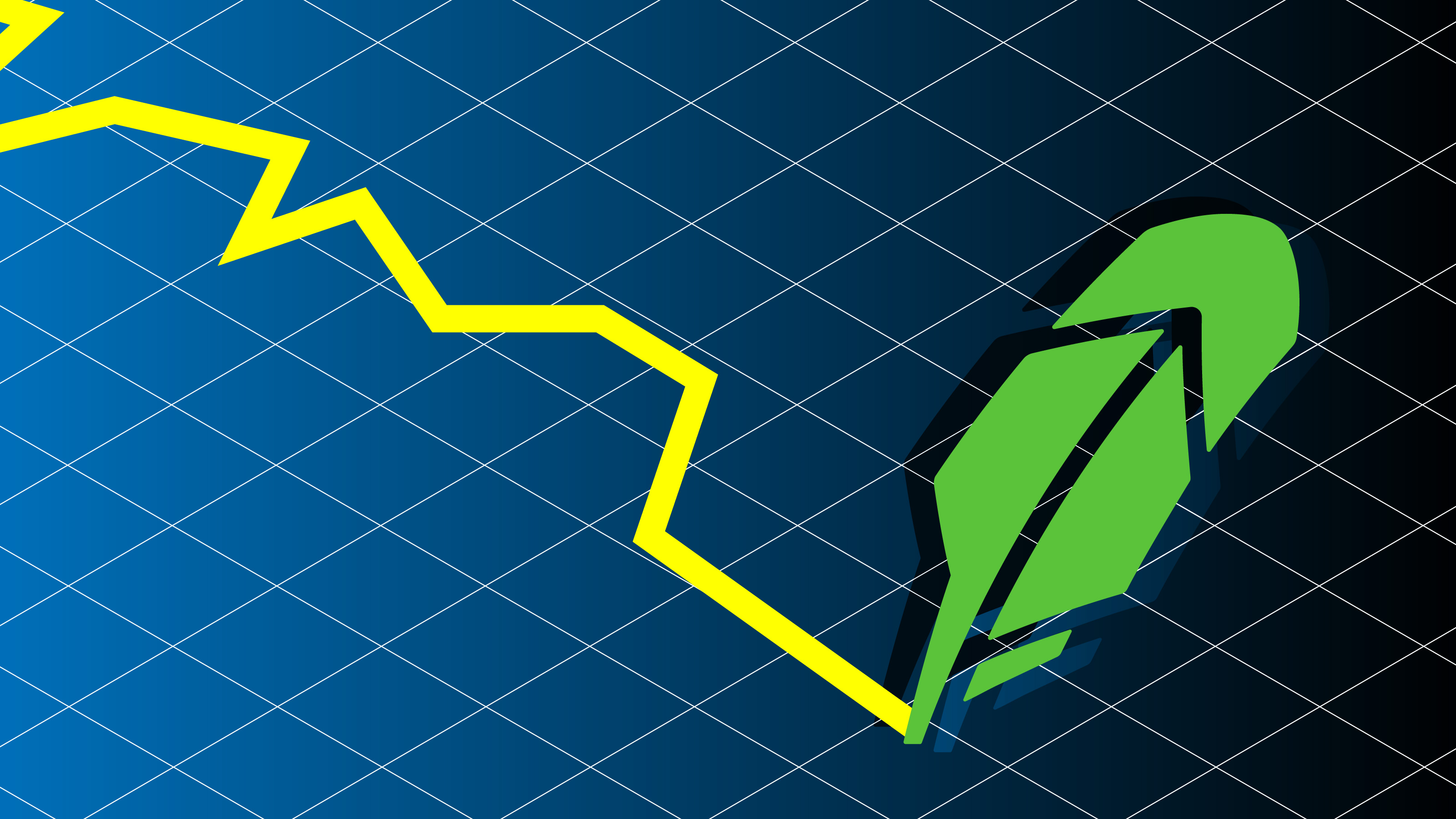Robinhood Markets Inc. was already having a rough month, with its shares touching all-time lows. But things got much worse after the brokerage disappointed Wall Street with financial results that showed stagnating growth and a muted outlook for the current quarter.
Investors pushed Robinhood shares down 13% in trading at 9:30 a.m. on Friday. The company’s market value has declined to about $8.9 billion, compared with $29 billion when the stock debuted in July. Even before Thursday’s results, the Menlo Park, California-based firm’s share performance looked like this:
Robinhood reported a net loss and revenue that both missed Wall Street analysts’ estimates. And it may get even more challenging: the firm forecast first-quarter net revenue of less than $340 million, which would be a decline of more than a third from the year-ago period.
In a call after the results, executives laid out plans for new business lines, including tax-advantaged retirement accounts and fully paid lending, as well as international growth. But with those ventures yet to materialize, the headwinds facing the stock remain. Some analysts are lowering their price targets in the wake of the lackluster results.

Here’s why investors are bearish:
Hood Hangover

Stock-trading revenues haven’t come close to the first-quarter of 2021, when the meme-stock frenzy buoyed Robinhood. Perhaps more worrying, even in a quarter where Bitcoin reached its loftiest price ever, revenue from cryptocurrency transactions slipped slightly from the previous three-month period, drawing in $48 million.
Losing Streak

Even though Wall Street has been predicting losses for the firm, Robinhood’s adjusted performance has been worse than consensus for each of the three quarters that it has reported as a public company.
Higher operating expenses

In response to criticisms — particularly about its customer service — Robinhood has been staffing up across the firm. Those moves have dramatically increased its operating expenses, which in the fourth quarter were 162% higher than in the year-ago period. And Robinhood said Thursday that operating expenses could increase as much as 20% in 2022.
Read full story on Bloomberg


